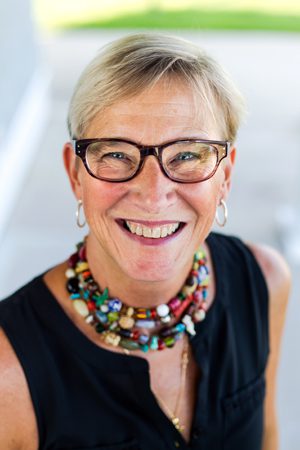
It’s an organization that’s committed to driving growth in a segment of the economy known as the “middle-market”—roughly defined as firms doing anywhere from $10 million to $1 billion in annual revenue.
But that’s just a beginning point for a discussion around ACG—the Association for Corporate Growth.

With some 14,500 members in 59 chapters worldwide, ACG serves 90,000. Investors, executives, lenders and advisors, the mission, of course, being to drive middle-market growth.
In Michigan, the leadership of the state’s two chapters — ACG Detroit and ACG West Michigan — are themselves working hard to redefine the organization for a new generation, not only bringing in new members but setting the stage for something of a rebirth.
ACG Detroit in the ‘transformative’ stage
It’s essentially how any sustainable organization reinvents itself, but for ACG Detroit and its current president, Chris Letts, the mission is really very much about changing the landscape.
“While the organization is very representative of the industry it serves, at the chapter level, especially at the leadership, it hasn’t been super diverse,” said Letts, a vice president and wealth advisor at Morgan Stanley. “We’re talking mostly white men who were generally advanced in their careers.”
That is about to change and perhaps the most striking example of that change came in the form of Danielle Bass, an attorney at Honigman who specializes in technology issues in the arts and entertainment industry.
“I joined ACG when the ink was still wet on my bar results,” said Bass. “I had grown up as a lawyer, been around law students and lawyers and wanted to be around business people. ACG was a perfect fit for that.”
She jumped right in — and keep in mind that Bass was just 27 when she joined the ACG Detroit board two years ago — taking a leadership role in her first event, a holiday event called High Tea and Hot Toddies.
“I was so encouraged by seeing so many women, but I looked around and found myself easily the youngest person in the room by a couple of decades,” said Bass.
It was then that she became determined to do what she could to see a shift in the demographics, something that became very much an organic plan to do what any organization that needs to become or remain relevant to its target audience needs to do if it is to survive.
And what was the response of existing members to these efforts?
“If there was push-back, it was pretty well hidden from me,” said Bass, an assessment that was echoed by Chris Letts.
Being tactful and conscientious may have helped.
“We wanted to base the kind of connect for our voices to be heard and our interest to be displayed,” added Bass.
It was in that same vein that the chapter’s Women’s Forum was developed, with Bass and others doing what they could to make sure there was multi-generational representation.
And Bass continues to push forward as she and others work to make ACG Detroit as relevant as possible to a next generation of members.
Western Michigan ACG—younger but still determined to grow
At the Western Michigan chapter of ACG, which was recently named mid-sized Chapter of the Year by ACG Global for the third year in a row, engagement with members has been key to the organization’s success, according to Julie Metsker, who serves as administrator of the chapter through her Professional Association Resources consultancy.
“Specifically, and this would be similar to our colleagues in Detroit, we’ve been focused on young professionals and and women in the finance industry, two groups that are under-represented in ACG,” said Metsker.
The chapter, where Jonathan Siebers, an attorney with Rhoades McKee, serves as president, is younger that Detroit’s, having been founded in 1997, but it was really started with young professionals in mind, one reason that a full 25 percent are in that category.
Growth continues with an emphasis on chapter members involved in the ACG Cup, a business case competition for MBA and undergraduate level students from schools like nearby Michigan State University.
“It’s really two-fold in that that it teaches about valuation for companies and it gives students a real-world experience for presenting to a board of directors,” notes Metsker.
Chapter members become fully engaged in the project, putting together valuation numbers, recommendations, presentations and learning both soft skills and the financial valuation skills that are involved.
The result is a decidedly robust way to bring everyone involved into conversation and engagement, says Metsker.
“It’s not just through the students involved but the young professionals who are volunteering their time,” she added.
Metsker, who saw ACG Western Michigan add 100 new members in 2018 (the chapter now boasts 350 in total), points out that it takes everyone to grow this type of organization.
“There’s tenacity and energy, but it’s also about ‘if you build it, they will come,’” she said. “Membership is a result, not a goal. It’s also the result of what we do, the good programming, offering the community things that they actually need, and anticipating.”







